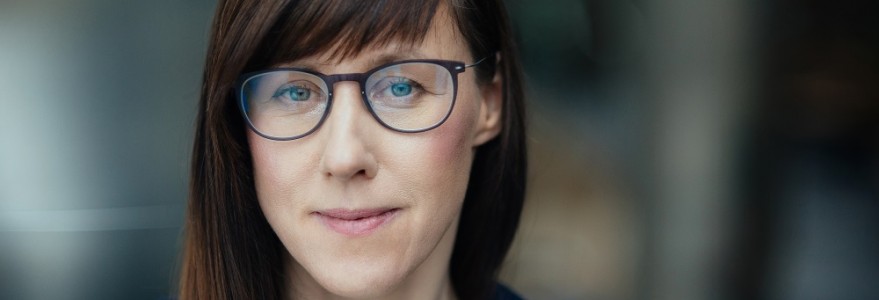The European Molecular Biology Organization (EMBO) elected 28 new young investigators from 11 countries. Assistant Professor Joanna Sułkowska from the Centre of New Technologies is among them.
Assistant Professor Joanna Sułkowska is a leader of the research group in the Interdisciplinary Laboratory of Biological Systems Modelling, Centre of New Technologies of the UW. The researcher is the only one person in Poland who won two EMBO grants – Installation Grant in 2014, and Young Investigators now.
EMBO is an organisation of more than 1 700 leading researchers that promotes excellence in the life sciences. Its programme, Young Investigators, supports talented young group leaders, under the age of 40, in the first years of establishing independent research laboratories. Those researchers receive financial, academic and practical support and participate in a network of more than 300 young scientists.
In this year, the programme received 224 eligible applications. EMBO elected 28 young scientists who represent some of the best up-and-coming group leaders in life sciences in Europe and beyond. During their 3-year tenure, the young investigators receive access to core facilities at the European Molecular Biology Laboratory in Heidelberg, Germany, funding to attend conferences, and an award of 15 000 euro and possible additional funds to support the establishment of their laboratories.
Assistant Professor Joanna Sułkowska has been awarded with the Young Investigators programme to understand the role of entanglement in proteins and to use this knowledge to enhance progress in medicine and nanotechnology to construct molecular machines.
– Some proteins which are knotted also are known to play the role in various diseases, for example obesity and Parkinson. It is likely that the appearance of these diseases is correlated with improper knotting. Moreover, some proteins, which are found in two different biological domain of life, but perform the same function are knotted in bacteria and unknotted in eucariota. Our goal is to use knotted proteins to design selective inhibitor new antibacterial drugs. To do this, we work at the interface of physics, mathematics, biology and chemistry – explains Assistant Professor Joanna Sułkowska.
At the beginning of this year, Assistant Professor Joanna Sułkowska has received the International Rising Talent Grant (L’Oréal-UNESCO). Before, she won, among others, Sonata BIS grant (National Science Centre), Ideas Plus II grant (Ministry of Science and Higher Education), Homing Plus grant (Foundation for Polish Science) and Inter grand (Foundation for Polish Science).



